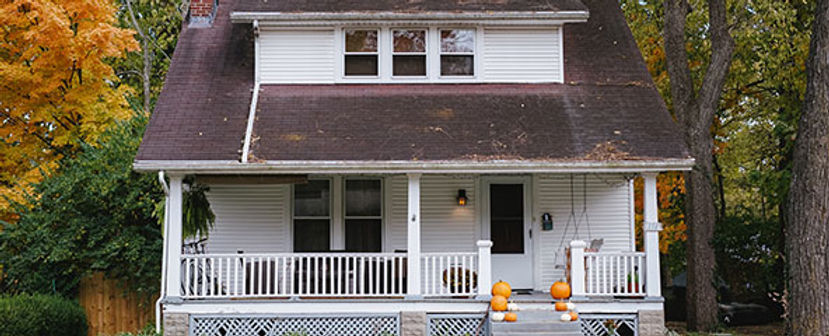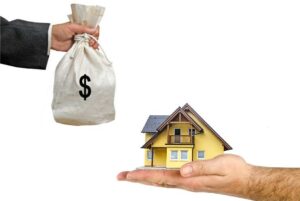Updated: Aug 11
So, you are planning to sell your house to an investor. Before you go about selling your precious home, ask yourself a ‘why’ question. Building or buying a house takes a whole lot of money, effort, and stress to be built.
If you have planned to sell your home, it may be either because you are getting a pretty good deal, or you are planning to shift to some other place. Some people also sell their homes or parts of them to cope with the financial crisis.
Having said that, if you are really selling your house, proper research should be done in order to find the best option with the most benefits.
You can either go through the trouble of finding a traditional buyer to sell your house, or you can sell quickly by choosing to deal with an investor. Both the options can be beneficial but still have drawbacks, with the former being a very troublesome process. Let’s jump a little deeper into the process.
In this article, we will try to understand the key differences between selling your house to an investor and selling your house to traditional buyers. However, to understand the difference between the two, it is necessary that we learn what a real estate investor is and how the real estate industry works.
Real Estate Investing – What & How
The real estate industry is a pool of opportunities. If you are into frequent property trading, you must be well aware of what is real estate investing. There are huge chances that you may earn a fortune if you start investing your money in the industry.

Real estate refers to a piece of land along with all its elements including the house and the natural components. When real estate is sold or bought, a real estate investor buys the whole thing without excluding any of the components.
This leaves us only with one question – how does the real estate industry work?
The answer may seem pretty simple – buying and selling. However, it is not as simple as it looks.
The real estate industry is a vast and complex sector that has given rise to millionaires but has also sucked down many investors to the bottom of the pit.
Coming back to the question, should you sell your home to a real estate investor? Or, should you still go around looking for a traditional buyer to sell your home?
If you are planning to sell your home to traditional buyers, you will need a lot of preparation. People who are looking to buy and hold the property would never want to invest in something that is not going to bear them fruitful results.
Before investing in any property in the local real estate market, a private investor would take a look at the property, get home inspections conducted, and based on the report of the home inspection would decide whether the property is worth investing in.
A home buying company is no different. Although most of the home buying companies are a part of the real estate industry, there are a few that act on their own.
A traditional home sale requires the property to be in top-notch condition. The home should look appealing and pleasing. There should be no negative elements that could open rooms for re-negotiations on the prices. If you are planning to sell your house in the local market, make sure that you have an updated home inspection report.
Some people ignore the process of a home inspection, thinking it to be a waste of money. However, little do they know that spending a few extra bucks on a home inspection could lead them to years of hassle-free living.
A traditional home sale process is nothing to worry about. However, no private investor would invest without assurance from a certified third party that the property is safe and secure with a long-lasting life. Having said that, if you are planning to put up your house for a traditional sale, you must get a professional home inspector to conduct a home inspection.
Before listing your house for sale, you will have to get every negative factor removed. A home inspection will also help you in finding the real value of your home. With all the repairs and amendments done, you will be able to list your house for sale at a fair market value.
Unlike this, selling your house to an investor sounds like an option with an easier process. Why? Most investors won’t look at the condition of the property. All they need to see is the purchase price and whether it will bring them profits.
Selling your house to a local investor or via a real estate agent is a tough job. They would also try to drag you down, below the actual value of the property. However, when dealing with professional real estate investors, this problem hardly comes up.
Reputable investors always maintain their dignity. They worry less about the prices. They will invest in real estate if the returns seem good.
Elements of Real Estate Investing
Now, the main concern is, whether or not selling a home to a professional real estate investor is a good idea. If you are selling your home to home investors rather than putting it up for a traditional sale, you are going to save yourself from a lot of trouble.
A real estate investor will buy a property for three purposes. Not only a real estate investor, anyone willing to invest in property will come across three options while buying a property.
- House Flipping
- Homeownership
- Rental properties
Real estate agents always aim for the three above-mentioned methods of investing. A property is only beneficial to a real estate agent if it falls under those three categories.
The aim is always to invent an amount that is lower than the actual value of the property. Let us discuss flipping, homeownership, and rental property in detail.
House Flipping:
There are times when home investors or real estate agents invest in a property in its original condition. This reduces the value of the property and they buy it at an undervalued price.
The purpose of flipping a house to an investor is to buy it at an undervalued price, make all the cosmetic repairs it needs to raise the price, and sell it off at a fair market value. This investment strategy is beneficial for real estate investors as well as for the seller.

The seller receives a fair cash offer with a hassle-free selling process. Home sellers who do not have enough money to get the repairs done or are going through a personal situation will prefer this method to sell their homes to investors.
A buy-and-hold investor will also prefer this real estate investment strategy as they may come across a pretty good steal. Spending a little on the property might fetch them a pretty good price in the traditional market.
Many investors prefer flipping a house to keep themselves engaged in the real estate transaction and generate a steady flow of income.
The investor offers for such properties are generally below the asking price. A home investor depending on this strategy will always aim to derive as much profit as possible.
Homeownership:
Homeownership is another great way to invest. Sellers usually receive the full value of their property. As the owner of a property, you may enjoy appreciation on the price you originally paid for it, as the surrounding real estate market picks up. Owning a property is also beneficial in case of serious financial emergencies. Since real estate, in any form, is an asset and an investment instrument, it can be used as a backup plan in case of emergencies.
A few things to take care of when selling a home are to find a good listing agent and know the accurate value of your home before selling.
Selling to an investor or working with a licensed real estate agent is always a beneficial choice for sellers and buyers. However, the seller needs to act with careful thinking rather than on a whim. Home selling can be an overwhelming process for an average home seller, but a home investor is well-versed and used to the process. The right investor can make the process easier and quicker for the sellers.
It is also a great idea for the parties to agree upon hiring escrow services to take care of things. The escrow company will hold on to the funds and the documentation until all the terms have been agreed upon.
Once the purchase agreement is signed by both parties, the escrow company will release the funds for a little amount as fees.
Rental Properties:
Real estate agents and investors are always looking for properties that can be used for renting purposes. These properties are often located in areas that are well settled.
These properties are ready to move in and are a stable source of income for real estate investors. Someone who is constantly putting money into buying land and houses makes sure that apart from the occasional huge profit, a stable source of income is always present.
Rental properties are lucrative but come with challenges. Since investment in real estate means diving in the pool with thousands and millions of dollars, it would be best to have a financial cushion to absorb the damage in case the fall goes wrong.
What to do if you own a property fit as a rental property:
If you own a home or an apartment that you see fit as a rental property, use it to get the most out of it. Before you decide to become a landlord and start looking for tenants, make sure that you are cut out to be a landlord.
Make sure that you understand the tenant laws and rental property taxes thoroughly before making a decision.
Being a landlord is a challenge in itself. If you are not cut out to be a landlord yourself, it is a superb idea to sell your rental property for a good cash offer from a real estate investor. The chances of getting scammed diminish to almost zero when you are dealing with a cash buyer. Moreover, depending on the rent that the property pulls in, you can expect to get a really great deal on an in-demand rental property.
To save themselves from the hassle of finding good tenants, working up skills as a landlord, and keeping away from the trouble of learning about the tenant laws of the US, a lot of rental property owners sell their properties to real estate investors.
Learn About the Market Value of Your Property
Before selling your home to a cash home buyer or an investor, you need to know the accurate value of your property and compare it with the offers made by professional investors.

What makes you think that you can list your home at the price you have decided?
There are chances that you may be underestimating the worth of your house. There is also a chance that you may have tagged your house at an overpriced value. In both cases, selling your property and getting a fair price will become challenging.
If you want to know the correct value of your property, a real estate professional will be able to help you best with the concern.
The market value of your house refers to the value at which your home should sell under normal circumstances. If you are not in any rush, you can wait to find the best cash buyer or home investors who can offer you the amount you are looking for.
Having said that, waiting may prove to be a surprising amount of work. Many real estate investors will ask to visit and inspect the property and as the seller, you should be prepared for the same.
If someone is going to throw in hundreds of thousands of dollars for a property, in cash, then it is fair for them to conduct a thorough inspection of the property.
Factors affecting the Market Value
The market value of a property is a flexible figure. It varies, depending upon many factors. Many buyers do not take these factors into consideration and fall at loss or struggle with making a sale at all. Many property owners make the mistake of thinking that the value of a property depends upon the price they initially paid for it.
They compare the cash offer that the investor offers to the price they paid when buying the property. This is one of the most misleading elements leading to flexible purchase arrangements.
Some factors that significantly affect the value of a property are:
1. INTERNAL FACTORS:
The internal factors that influence the value of a property are the quality of the construction, the structure of the house, availability of crawlspace, size, ventilation, condition of the property and the appliances, furnishing, etc.
If the internal factors are in good condition, many homebuyers and investors may be willing to a premium over and above the market price.
2. EXTERNAL FACTORS:
The overall look and feel of the property, the curb appeal, condition of sewage systems, gutters, roof, drive space, patio, and every other thing that lies on the exterior of the house’s structure fall under the category of external factors of the property.
These may not look like much, but are quite crucial, especially to people who may be considering the property as a possible home for their family. Similarly, real estate investors will also pay attention to the curb appeal and other aspects of the property as these factors will influence the kind of return they can expect to make on their investment.
3. LOCATION:
A good location is perhaps the most lucrative feature of a property for any type of buyer. The location of a house has the most significant influence on the price of the property. If your property is in a safe and secure location, surrounded by a good neighborhood, has easy access to the markets, schools, and hospitals the value of your property may be incredibly high.
How to determine the market value of your property?
To determine the value of your property, do the following:
Search for properties that are similar to yours in age, style, size, and location. Include only those that have been sold very recently.
If you cannot find one on your own, hire a broker or take assistance from real estate agents. Talking to the locals is a sure and certain method to find such properties. Besides these methods, you can always browse real estate websites to look at the prices of properties in your area.
If you are able to find such properties, compare their details with yours. Pick a few properties that are most similar to yours, and make a thorough comparison.
Keep in mind that properties that may have more or fewer amenities than your own property may be priced higher or lower, depending on the specifics.
Once the comparison between properties is done, start calculating the total price of the property. Start with the initial amount that you paid to acquire it. Then add the value of all the amenities and features that you have added to the home.
If needed, get a home inspection conducted to find out about any underlying issues that may create problems with potential buyers or may end up undermining the selling price of your property. To make sure you get the maximum value for your property, invest in fixing the issues reported in the home inspection report.
Any cosmetic change that you do will add to the value of your property. The home inspection report will also act as a marketing tool.
Based on all these calculations, you can determine the actual value of your home.
Selling Home To Investor
Coming back to the original question – Should you sell your home to an investor?
Different real estate experts would have diverse thoughts and answers on this question. Ours is in favor of it.

Selling your home to an investor is always a beneficial choice.
Wondering why? Here are a few reasons:
1. An investor will buy your home as-is:
An investor will not plan on living in the house, so he/she won’t care what features it boasts. Whether the kitchen is fixed with Italian marble or the bathroom has golden faucets will matter the least to an investor.
Their purpose is to buy and sell at a profit. It has nothing to do with what the property looks like. Investors usually go for an as-is sale of the property in order to keep their closing costs under control.
2. Fair price compared to open market:
The open market has a diverse variety of buyers. Most buyers will always try to secure the best deal at the lowest price, regardless of how great your property is. An open market is a dangerous place and inexperienced sellers may find themselves struggling.
Having said that, investors often tend to offer a fair price to the sellers. They will even offer a closing date and split the closing costs as per the buyer’s preference.
3. Potential for flexible purchase arrangements:
The investors would take into consideration that the seller may need time to move and hence would be ready to make changes to the purchase arrangements.
In case the seller lacks a secondary place to stay, the investor may also be willing to give the place on rent to the seller under a sale-leaseback transaction.
Homebuyers usually tend to stay rigid on the terms and the flexibility with the purchase arrangements might not be present.
4. Investors Usually Pay in Cash:
There have been numerous incidents when a home sale has ended up in a scam. The purchase agreement was signed and the buyer received the amount through cheques but the cheque never worked.
Selling to an investor reduces these mishaps as investors usually pay in cash. You can collect the cash and count every single dollar before signing the purchase agreement.
Selling to an investor means that you get closing costs as per your satisfaction. Investor selling results in satisfied sellers and nothing less.
5. No Unnecessary Expenses
Selling to an investor, local or foreign, means that you do not have to worry about the overall appeal of your home.
The investor will buy and pay for your home as-is and will not expect you to do any repair work. The closing costs hardly get affected because of this.
Conclusion:
Selling to an investor is a rather beneficial process in the USA. If you are having a home that you are interested in selling, contact real estate investors and private investors to buy your property.
There are various advantages of selling to an investor. An investor may buy your property for ownership, house flipping, or as a rental property, but it doesn’t matter.
An investor will always calculate the market value of the property and pay an amount in cash that leaves a satisfied client on the other end of the bargain.
If you are worried about selling your property, you can trust an investor to the fullest. They are professionals who have been dealing in property trades for a long time. They will deliver you the best value and best solution for all your housing needs.








